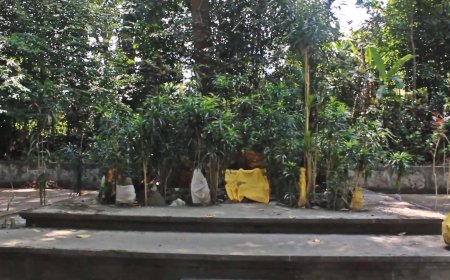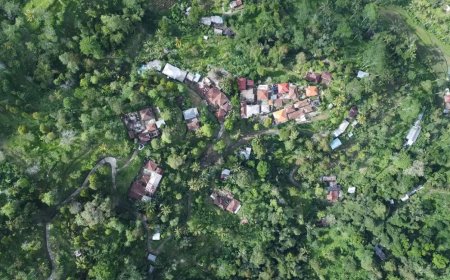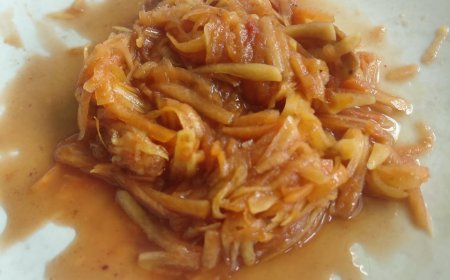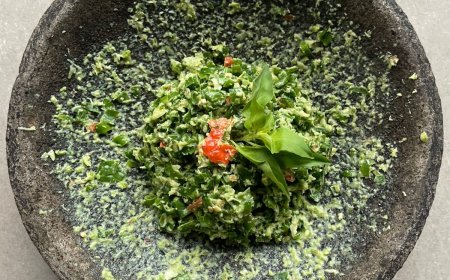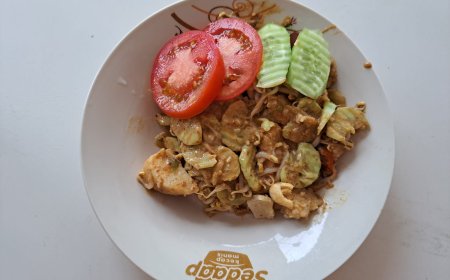The Natural Pleasure of Munduk Village Tuak Manis: Authentic Fermentation of Coconut Sap
Amidst Bali's alluring natural beauty lies an authentic and unique culinary treasure. Munduk Village, located in the mountainous region of North Bali, holds the secret to the natural delight that is Bali's cultural heritage: sweet tuak. This traditional drink, derived from the fermentation of coconut sap, offers a naturally sweet and refreshing taste, and has a special appeal for Balinese food lovers.
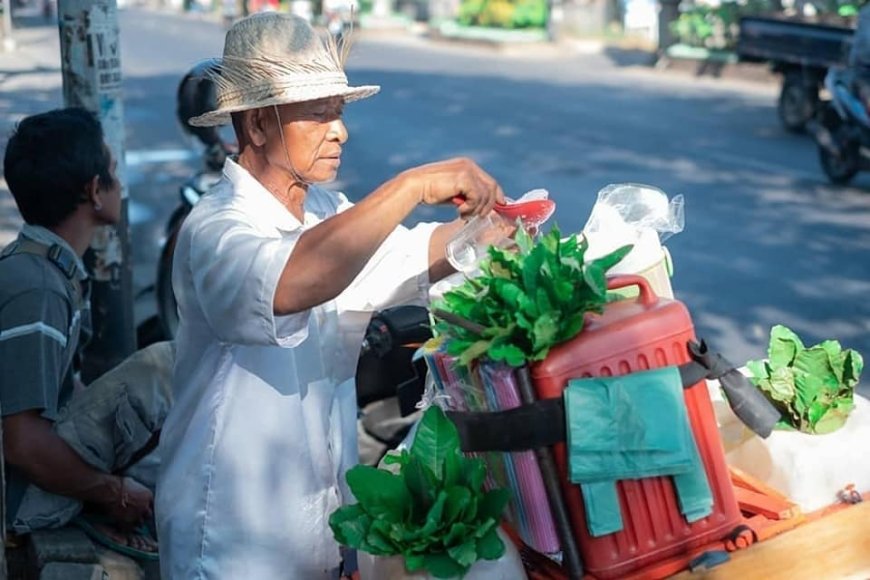
Tuak Manis is a traditional drink that has long been known in Bali, especially among rural communities such as in Munduk Village. Located in a mountainous area, Munduk Village is famous for its cool air and beautiful natural panorama, making it an ideal location for planting coconuts and sugar palm trees. The tradition of processing sweet palm wine has been passed down from generation to generation and has become part of the cultural identity of the Munduk people. The people in this village consider palm wine not only as an ordinary drink, but also as a symbol of gratitude to nature which provides abundant resources.

Munduk Village Tuak Manis Trader in Singaraja (Source: Personal Collection)
The main basic ingredient for making sweet palm wine is coconut sap, which is a sweet liquid obtained from young coconut flower bunches. Coconut sap was chosen because it provides a natural and fresh taste. Apart from coconut, several sweet palm wine producers in Munduk are also starting to experiment with palm tree sap as a flavor variation. The other ingredients needed for fermentation are only natural ingredients such as yeast, without any additional chemicals, which makes sweet palm wine a very natural and healthy drink.
Making sweet palm wine in Munduk Village starts with selecting healthy and fertile coconut trees. Ripe coconut trees are selected to produce quality sap. Once the coconut tree is ready, young coconut flower bunches are selected for tapping, because this is where the sweet sap is obtained. Every morning and evening, farmers climb coconut trees to cut the flower bunches little by little to let the sap flow. The sap that comes out is collected in bamboo or a special container tied to the bunch. This tapping process is carried out in stages, usually for 3-5 days per flower bunch, so that the sap produced remains fresh and of good quality.
Once collected, the sap is taken to the processing site for further processing. This is where fermentation begins. Fresh coconut sap is placed in large bamboo or clay pottery to ferment naturally. Fermentation lasts 12–24 hours, depending on temperature and humidity. At warm temperatures, fermentation tends to be faster, while cooler temperatures slow down the process. In some areas, natural yeast obtained from previously fermented sap is added to speed up fermentation, but in Munduk Village this process is usually left to its natural course without the addition of chemicals or preservatives.
After fermentation, the sweet palm wine is filtered using a soft cloth or special filter made from natural fiber so that the texture remains soft and clear. This filtering ensures that the sweet palm wine is ready to be served fresh and free of sediment. Some palm wine makers add pandan leaves, ginger, or cinnamon to provide additional aroma and taste, but many also maintain the purity of the original taste of coconut sap. After filtering, the sweet palm wine is served in bamboo or earthenware containers to maintain freshness and temperature.
If not consumed immediately, sweet palm wine can be stored in tightly closed glass or bamboo bottles. However, ideally sweet palm wine is enjoyed for a short time, because fermentation continues and can change the taste to a more sour one. The process of making sweet palm wine in Munduk Village relies on techniques passed down from generation to generation, which reflect the authenticity and patience of the farmers. Every drop of sweet palm wine from Munduk Village is the result of the precision and hard work of local farmers. The fresh sweet taste of this natural fermentation provides a pleasure that is not only refreshing, but also carries the cultural values and long history of the Balinese people. By enjoying this sweet palm wine, we help preserve Bali's authentic and unique heritage.
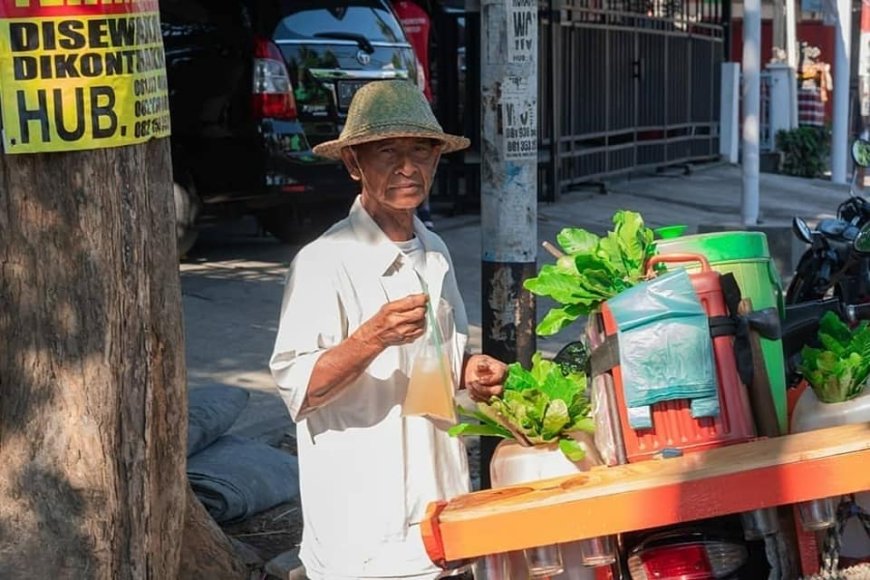
Munduk Village Tuak Manis Trader in Singaraja (Source: Personal Collection)
Tuak Manis from Munduk Village has several unique qualities that differentiate it from other Balinese culinary delights. First, the natural manufacturing process and no additional chemicals make this drink healthier and safer to consume. The sweet taste of slowly fermented coconut sap provides a freshness that cannot be imitated by factory-made drinks. Additionally, because it is made on a small scale and by hand, each batch of palm wine has a slightly different taste and aroma, creating a unique experience every time you taste it.
Apart from its distinctive taste, sweet palm wine is also considered a drink that can refresh the body and provide energy, especially when drunk after working under the hot sun. Another unique quality is the cultural value and local wisdom attached to every drop of sweet palm wine. This drink reflects the wisdom and gratitude of the Munduk people who live side by side with nature.
Sweet palm wine, the result of fermented coconut sap, has various benefits that are good for health, especially if consumed wisely. As a natural energy source, sweet palm wine contains sugar from coconut sap which can provide a quick energy boost for the body, very beneficial after heavy physical activity or working outdoors. This drink is also rich in nutrients such as B vitamins, vitamin C, potassium, calcium, iron, and magnesium, all of which are important for maintaining healthy bones, muscle function, and the immune system. In addition, with its high water and electrolyte content, sweet palm wine helps hydrate the body, maintains fluid balance, and is beneficial for heart health, especially in hot weather.
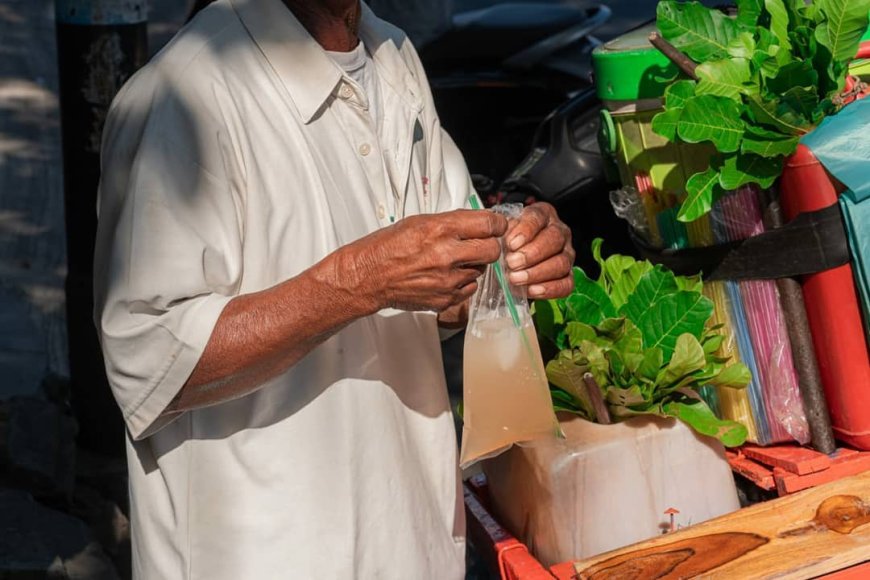
Munduk Village Tuak Manis Trader in Singaraja (Source: Personal Collection)
More than that, the natural fermentation process in sweet palm wine increases antioxidant levels, which help fight free radicals in the body, reduce the risk of chronic disease, and maintain healthy skin. This fermentation also produces probiotics which support digestion by maintaining the balance of good bacteria in the intestines, helping prevent digestive problems such as constipation and bloating. The potassium content in coconut sap is also known to help lower blood pressure and reduce the risk of hypertension by regulating electrolyte balance in the body. The combination of vitamin C and antioxidants in palm wine strengthens the body's immune system, while the B vitamins, especially B6, play a role in the health of the nervous system and the production of serotonin, which can improve mood and reduce stress.
However, even though it has many benefits, it is important to consume sweet palm wine in reasonable amounts. The fermentation process produces a small amount of natural alcohol, so excessive consumption is not recommended, especially for those with certain sensitivities or health conditions.
For those curious and wanting to enjoy the deliciousness of sweet palm wine, this traditional drink can be easily found at several roadside traders in Singaraja City or directly from farmers in Munduk Village. In the midst of the hustle and bustle of the city, enjoying a glass of fresh, sweet palm wine can be a unique experience. Apart from its sweet and fresh taste, this drink takes you back to the roots of long-standing Balinese traditions.
By buying sweet palm wine directly from local farmers or traders, you will not only taste the distinctive flavor of fermented coconut sap, but also support the sustainability of local culture and traditions. Every drop reflects local wisdom passed down with love and perseverance. Enjoying sweet palm wine means appreciating the value and culinary heritage of Bali, and helping to keep this wealth alive and sustainable for future generations.
